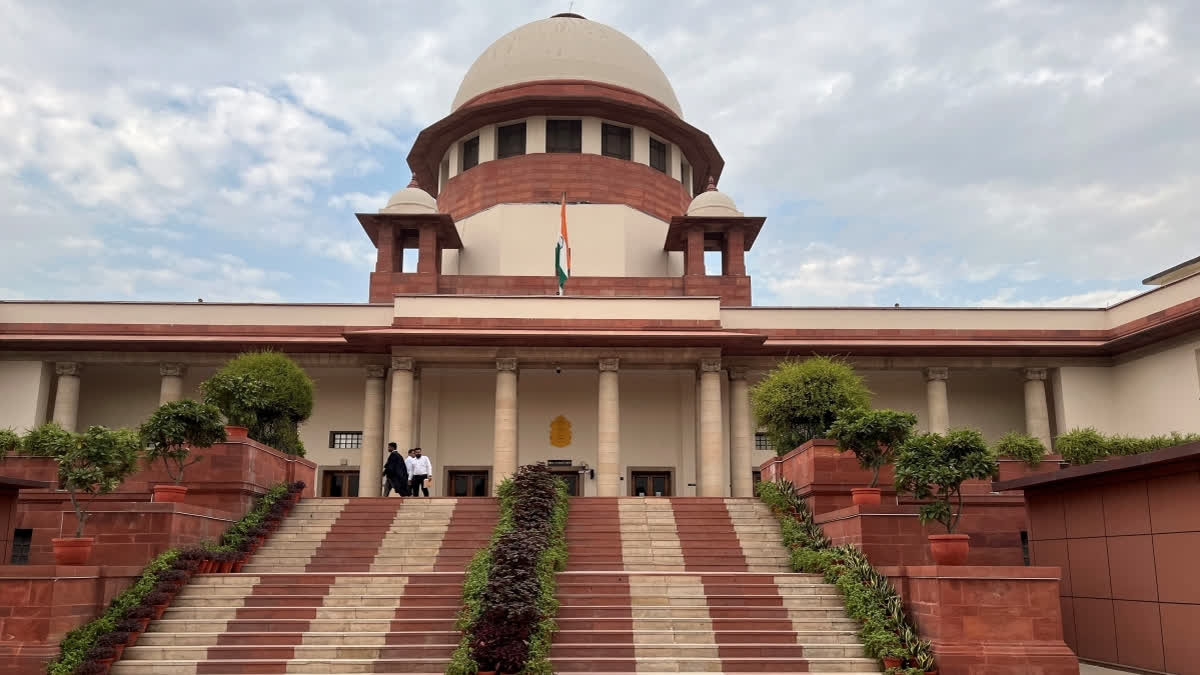New Delhi: A false case of dog bite was foisted on 30-year-old Apoorva Pathak, jeopardising her aspiration of having a career in the judiciary. Despite securing an appointment on merit, Pathak, who won a gold medal in law, fought a long and draining legal battle even after getting an acquittal in 2018.
Pathak's much-awaited relief came recently when the Supreme Court quashed the Madhya Pradesh High Court order against her appointment for the post of judicial officer (civil judge, junior division) for Madhya Pradesh Judicial Services.
A bench comprising justices Sanjay Kishan Kaul and Sudhanshu Dhulia said: “We have absolutely no doubt in our mind that the decision of the High Court taken on its administrative side though well-intentioned, is causing a grave injustice to the petitioner”.
The apex court said, in an order uploaded earlier this month, “In our considered opinion the grounds which have been made by the high court for not giving appointment to the petitioner are not tenable”.
Setting aside the high court order, passed on December 5, 2022, the bench said the petitioner shall be given appointment to the post of civil judge (junior division) and “we also make it clear that her seniority will be given as per the original seniority, i.e., from the date of her selection, in order of her merit”. Pathak was represented by advocate Namit Saxena before the apex court.
The bench noted that the objections raised by the high court that she has not appeared before this court with clean hands is not correct and pointed out that the nature of the offence against the petitioner is itself an extremely minor offence under IPC. “For the non-disclosure of this offence, she has already suffered inasmuch as in the first round of selection for the year 2017 although she was selected but was not given an appointment, and she lost her case right up to the Supreme Court. To punish her again for the same reason in the next selection process is not justified in our opinion. To put it simply, the petitioner was charged with an offence under Section 289 IPC, for which she was acquitted in the year 2018”, said the bench.
The high court had contended that it is not the gravity of the offence which counts, but the fact that the petitioner had not disclosed the fact that in the earlier selection process which was for the year 2017 her candidature was rejected for the same reason. A reference has been given to the same selection which was made for the year 2017 where evidently the petitioner had not disclosed the fact and therefore, she was not appointed although she had qualified the examination.
The Full Court of the Madhya Pradesh High Court decided not to appoint her for the post and this decision was accepted by the state government. Pathak moved a petition before the high court, which was dismissed as was her review. She moved a special leave petition before the apex court against the high court order but it was dismissed as withdrawn.
“Now in the present case, which relates to the subsequent selection process (2019), for the same post, one of the reasons given by the High Court for not giving an appointment to the petitioner is her non-disclosure in the earlier selection process (2017) and the fact that she had lost her case from all the courts including the Supreme Court. The fact that in the present selection process, the petitioner had disclosed her so-called ‘criminal case’ and acquittal has been admitted by the High Court”, noted the bench. The second objection of the high court was this fact had not been stated by her in the present writ petition, before the Supreme Court.
Pathak cleared the Madhya Pradesh Judicial Services Examination, 2019 while awaiting posting, she was shocked to note that her name has been deleted from the merit list/selection list. "It is pertinent to note that at all stages of the judicial services examination i.e., prelims, mains and interview, the petitioner had mentioned the said fact of her being framed in a false case and that she has been acquitted by the trial court," said her plea before the apex court.
The plea further contended that the high court failed to appreciate that the registration of an FIR under section 289 is a petty offence which does not involve mens rea or moral turpitude and squarely falls within the guidelines laid down by the apex court in "Avtar Singh v Union of India".
In a complaint made in February 2018, it was alleged that the petitioner made her pet dog bite the complainant and thereby omitted to take actions which are sufficient to guard against any probable danger to human life, or any probable danger of grievous hurt.
The plea added that she was not provided any opportunity of hearing before the order was passed on December 5, 2022, and the order also failed to take into account the character certificate issued by the police department declaring her to be fit for public service.
Also read:
- 'The approach of state is shocking….': Supreme Court to UP government in row over slapping of Muslim boy in classroom
- Pollution matter: Don't try to non-perform & shift burden onto court, SC to Delhi Govt
- 'Direct bearing on democracy': What observations SC made on over 5,000 pending cases against MPs, MLAs



